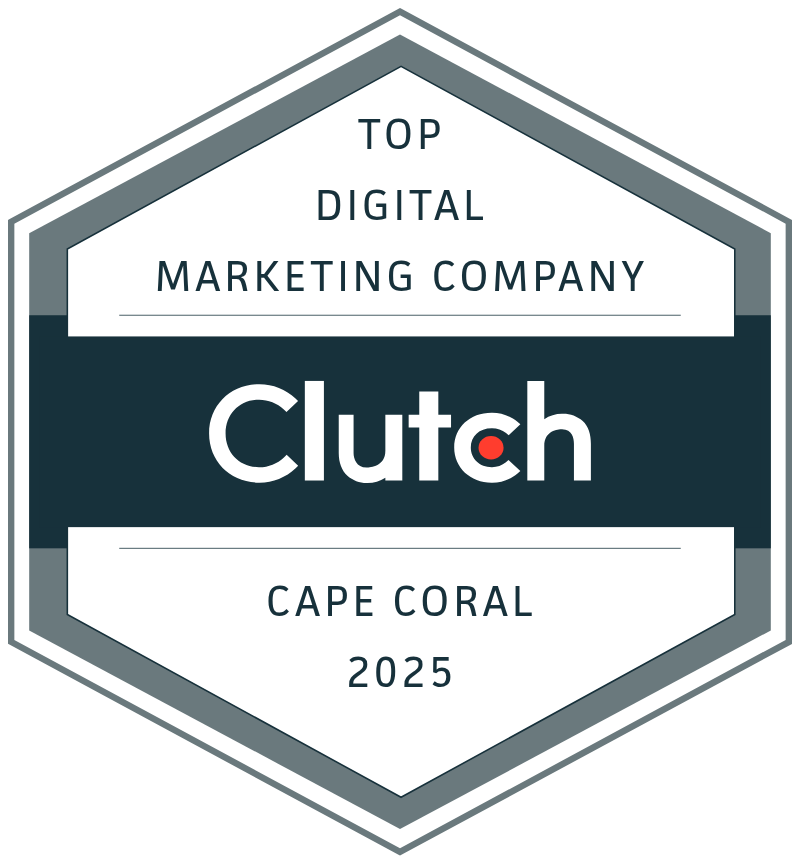In the ever-evolving world of online marketing, terms like “digital marketing” and “social media marketing” are often used interchangeably. However, while these concepts are interconnected, they are not synonymous. Understanding the distinction between them can help small businesses create effective strategies to grow and thrive in the competitive digital landscape.
What is Digital Marketing?
Imagine navigating a bustling digital marketplace where every corner shop has vibrant signs vying for your attention. That’s essentially what digital marketing is—a dynamic, multifaceted approach to capturing the interest of potential customers online. From search engines to social media platforms, every digital alleyway offers businesses an opportunity to shine At its core, digital marketing leverages these various channels to establish, nurture, and grow connections with audiences. Let’s break down some of its key components:
- Search Engine Optimization (SEO): Have you ever wondered why certain websites appear at the top of your Google search results? That’s SEO magic. By optimizing content with relevant keywords, businesses can rank higher in search results. In fact, higher search rankings can boost traffic by as much as 300% (Source: Search Engine Land).
- Content Marketing: Once considered the king of the digital landscape, content marketing remains a cornerstone of online engagement. Whether it’s a witty blog post, an insightful e-book, or an engaging infographic, valuable and relevant content captures attention and fosters loyalty. As Bill Gates once said, “Content is king.”
In the information age, content marketing isn’t just about storytelling. It’s about telling a true story well.
- Pay-Per-Click (PPC) Advertising: Imagine having an advertisement tailored exactly to the people who are looking for your services. PPC campaigns, such as Google Ads, make this possible by displaying ads to users actively searching for related keywords. According to a WordStream statistic, businesses make an average of $2 in revenue for every $1 they spend on Google Ads.
- Email Marketing: Far from being obsolete, email marketing continues to offer substantial ROI, boasting a return of $42 for every dollar spent (Source: MarketingSherpa). Through targeted campaigns and personalized messages, businesses can nurture leads and retain customers efficiently.
- Marketing Automation: Imagine having a personal assistant who never sleeps. Marketing automation tools handle repetitive tasks such as email campaigns, social media posts, and ad management, freeing up your time to focus on strategy and creativity.
- Web and Mobile Marketing: In today’s world, a user-friendly website or app isn’t just a nice-to-have; it’s essential. Mobile optimization is especially critical; according to Statista, there are over 3.8 billion smartphone users globally. Ensuring an effortless, enjoyable experience can greatly enhance user retention and engagement.
- Video Marketing: In the fast-paced digital realm, a picture is worth a thousand words, and a video is worth even more. Video marketing can increase organic traffic from search engines by as much as 157% (Source: Brightcove). Whether it’s a product demonstration, a testimonial, or a behind-the-scenes look, videos are highly shareable and incredibly engaging.
In essence, digital marketing is like a Swiss Army knife for online business growth, equipped with versatile tools and adaptable strategies. When used effectively, it can transform a small business into a digital powerhouse, creating lasting connections with customers and driving significant growth. Don’t just take our word for it—embark on this fascinating journey and watch your brand flourish in the virtual marketplace.
What is Social Media Marketing?
Social media marketing (SMM) is like the electrifying of digital marketing, buzzing with energy and full of potential. It involves using social media platforms like Facebook, Instagram, LinkedIn,, and YouTube promote products and services. Imagine these platforms as bustling town squares where your business can not only be seen but celebrated. Let’s dive into the key aspects that make social media marketing a game-changer:
- Social Media Advertising: Tired of shouting into the void? Social media advertising lets you target your ads to the right audience segments. A well-placed Facebook ad may increase your brand awareness by 75%, according to Hootsuite.
- Influencer Marketing: Partnering with influencers is like having the popular kid in school wear your brand. Their endorsement can extend your reach and add authenticity. Forbes points out that businesses make an average of $5.20 for every $1 spent on influencer marketing.
- Content Creation: It’s not just about posting updates; it’s about storytelling. Crafting engaging posts, captivating stories, and compelling videos keeps your followers hooked. Did you know that videos on Instagram get 21.2% more interactions compared to traditional photos?
- Community Management: Think of it as the friendly neighborhood watch. Interacting with followers, addressing their concerns, and managing your brand reputation are crucial. According to Sprout Social, 79% of people expect brands to respond within 24 hours.
- Analytics: Ah, the Sherlock Holmes of social media! Tracking and analyzing performance metrics helps in optimizing strategies. Tools like Google Analytics can increase marketing ROI by 70% (Smart Insights).
“Social media is not just an activity; it is an investment of valuable time and resources.” — Sean Gardner
So, whether you’re crafting a viral TikTok challenge or navigating the latest Instagram algorithm change, social media marketing offers a dynamic channel to elevate your brand’s presence and foster meaningful connections with your audience.
The Key Differences
While both forms of marketing aim to promote businesses and with audiences, the lie in their scope, tools, and techniques. Here are some critical distinctions:
- Scope: Digital marketing is the cosmic universe of online marketing. Imagine it as the entire Milky Way, containing stars, planets, and asteroids, where every entity plays a role. On the other hand, social media marketing is more like Earth—an essential, but singular planet focusing specifically on social platforms. In fact, according to Statista, over 70% of the U.S. population has at least one social media profile. Yet, digital marketing brings in myriad other players such as email campaigns, SEO, PPC, and more into the mix.
- Tools and Techniques: Digital marketing is a Swiss army knife of online strategies. It includes everything from the scalpel-like precision of SEO (Search Engine Optimization) to the broad brush strokes of PPC (Pay Per Click). Businesses might employ email marketing, evocative content marketing, and intricate marketing automation. Conversely, social media marketing tools are more like paintbrushes designed for specific canvases. Here, tools include Facebook algorithms, Instagram stories, LinkedIn posts, and Twitter tweets. A savvy marketer leverages each platform’s unique features and audience behaviors to maximize engagement. As marketing guru Neil Patel says:
“It’s not about having the right opportunities. It’s about handling the opportunities right.” – Neil Patel
So, while digital marketing deploys an arsenal, social media marketing narrows down to those viral-worthy posts and shares.
- Goals: Digital marketing aims for a comprehensive digital presence, which is akin to building a grand digital mansion that has both curb appeal (organic and paid search) and solid internal amenities (website optimization, content, and email strategies). Meanwhile, social media marketing prioritizes engagement and brand building on social platforms, like throwing a fabulous block party where everyone knows your brand’s name and shows up. Here, the goal is often to boost user interaction, foster a community, and create shareable moments. Think Wendy’s Twitter account—humor and customer interaction used to build a solid brand identity.
Integrating Digital Marketing and Social Media Marketing
Picture this: you’re at a party, and you want to the life of it You’ve got the dance moves (SEO), the jokes (content marketing), and you’re mingling with everyone (social media marketing). Now if you could combine all these elements seamlessly; you’d be the star of the party, right? That’s exactly what happens when you integrate digital marketing and social media marketing!
Increase Visibility: Think of digital marketing and social media as the ultimate power duo. When you blend SEO efforts with social media marketing, your online presence skyrockets. For instance, a study by Hootsuite revealed that websites see a 71% increase in organic search traffic when integrated with social media. That’s like having a neon sign pointing to your business!
Drive Engagement: Content marketing is like the life of the party—fun, engaging, and keeps everyone talking. By utilizing it across different channels, you captivate your audience where they hang out most. Imagine sharing an expert blog post on LinkedIn while concurrently posting an engaging video on Instagram. The result? Your audience is hooked, coming back for more. As marketing guru Neil Patel puts it:
“Creating content that is valuable, useful, and shareable can help your business build a loyal customer base and create long-lasting brand awareness.”
Enhance Conversions: Imagine mixing the fast-paced world of PPC with the relationship-building magic of social media marketing. PPC (or pay-per-click) gets you immediate clicks and visibility, like a turbo boost. On the other hand, social media fosters long-term connections. It’s like having the best of both worlds—instant gratification meets sustained engagement. According to WordStream, businesses make an average of $2 in revenue for every $1 they spend on Google Ads. Now, add social media’s long-term engagement to the mix, and you’re golden!
Monitor and Adapt: Whether you’re testing a new digital advertising tactic or tweaking your social media strategy, data is your best friend. Integrating these two channels allows for a more comprehensive approach to performance metrics. Analyzing data from both digital marketing and social media campaigns helps you optimize your strategies continuously. According to Salesforce, 72% of successful marketers attribute their achievements to understanding their campaign metrics better. So, keep an eye on those KPIs and pivot as needed—it’s like getting live feedback and adjusting your dance moves to keep the crowd cheering!
Conclusion
While digital marketing and social media marketing have distinct characteristics both are essential for holistic online marketing strategy By understanding their differences how they complement each other, small businesses can leverage the full potential of the digital landscape to grow and succeed. For instance, a study by Statista highlighted that digital ad spend worldwide reached over $390 billion in 2021. This underscores just how critical digital advertising is in today’s marketplace.
Social media marketing is a powerhouse, especially if you’re trying to connect with a young and engaged audience. Platforms like Facebook, Instagram, and LinkedIn offer targeted ad options that can help you reach your ideal customer more efficiently. For example, Facebook Ads boast advanced targeting options by demographics, behavior, and even user interests, making it easier for businesses to connect with their target market. But remember, just because you can use every bell and whistle doesn’t mean you should. Or as business guru Peter Drucker famously said:
“Doing the right thing is more important than doing the thing right.”
On the other hand, digital marketing involves various techniques like SEO, email marketing, PPC, content marketing, and more. A well-optimized website and a strong SEO strategy can drive organic traffic, giving you a more permanent online presence. According to Search Engine Journal, 53% of all trackable website traffic comes from organic search. This makes SEO a foundational piece of any digital marketing strategy.
Therefore, it’s not a matter of choosing between digital marketing and social media marketing. Instead, think of it like a recipe: a pinch of social media engagement, a dash of SEO, a tablespoon of email marketing, and a sprinkle of PPC ads can come together to make a deliciously effective marketing strategy.



